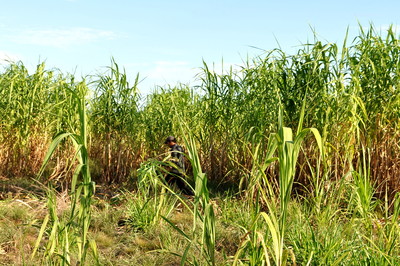New Publication: ECHO Central America / Caribbean Notes
Publié
2017-05-09
The first edition of ECHO Central America / Caribbean Notes (CACN) presented the article “Making Silage in Vichada“ written by Dexter B. Dombro. From this article we learned that silage is an important supplement to feed livestock during long droughts when grasses dry up and lose nutrients.
Excerpt: Silage is a farm product made from fresh cut grasses or other green forage matter, mixed with molasses, compacted and hermetically sealed and stored. Silage, as cattle feed, offer some important advantages. From a nutritional point of view, silage conserves most of the nutrients of fresh cut grasses; while hay, which is dried grasses, loses most of its nutrients. Silage, as a farm product, is economical as it eliminates the cost of transportation. In Colombia, at “La Pedregoza” it cost $20,000 Pesos to produce 40 kg of silage. However, to purchase the same amount of commercially produced feed the cost would be about $60,000 Pesos.
In the eastern plains of Colombia the summer produces a drought of 4 months during which grasses and fodder dry and it is not possible to establish alternative crops. As cattle are grazing all the time, it is absolutely necessary to supplement the animals' nutrition, to avoid a great loss of weight, or to get sick from malnutrition. While there is no replacement for fresh nutritional fodder or grass in terms of animal nutrition, silage is a way to preserve most of the nutrients required for cows. An additional benefit of feeding silage to cows is that the quality of silage manure is better when preparing compost or other fertilizers.